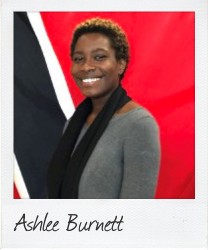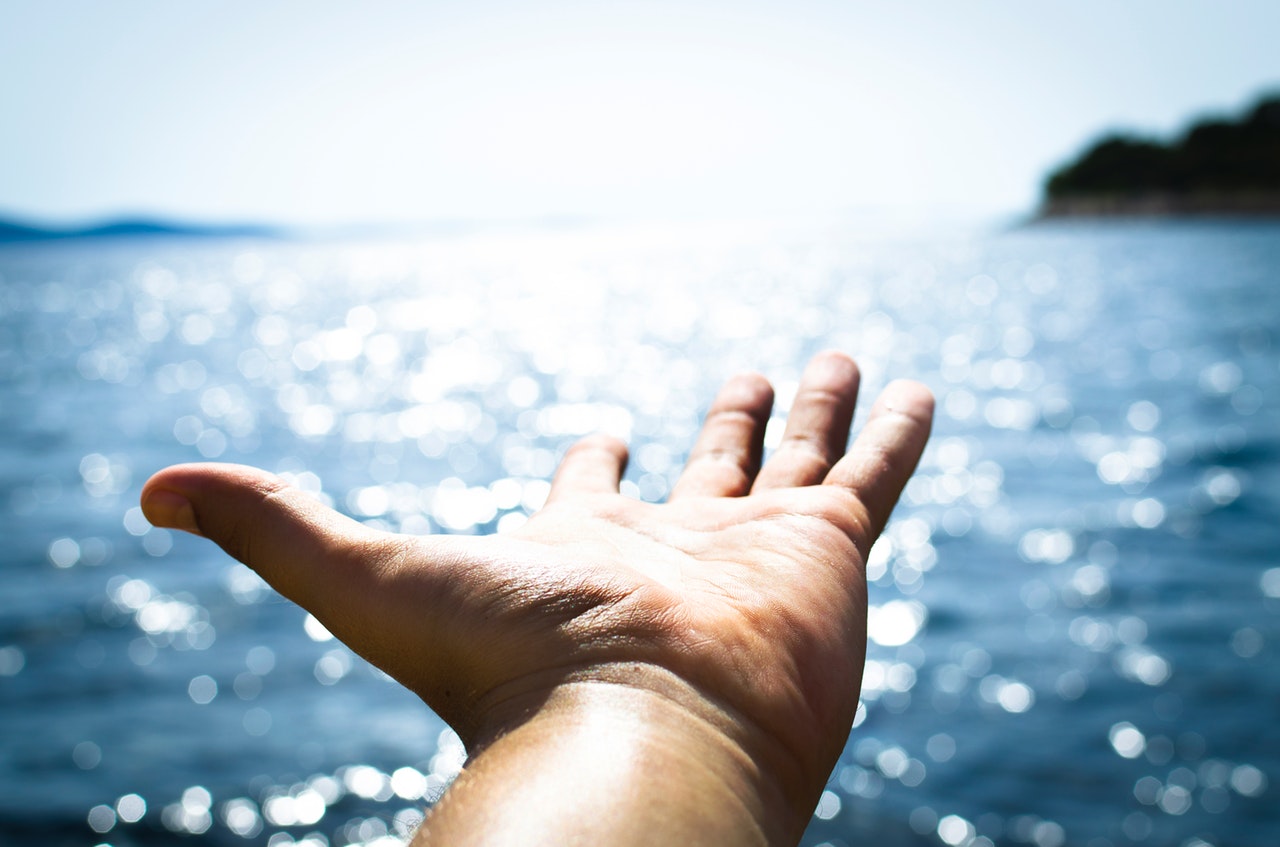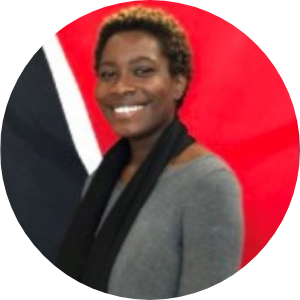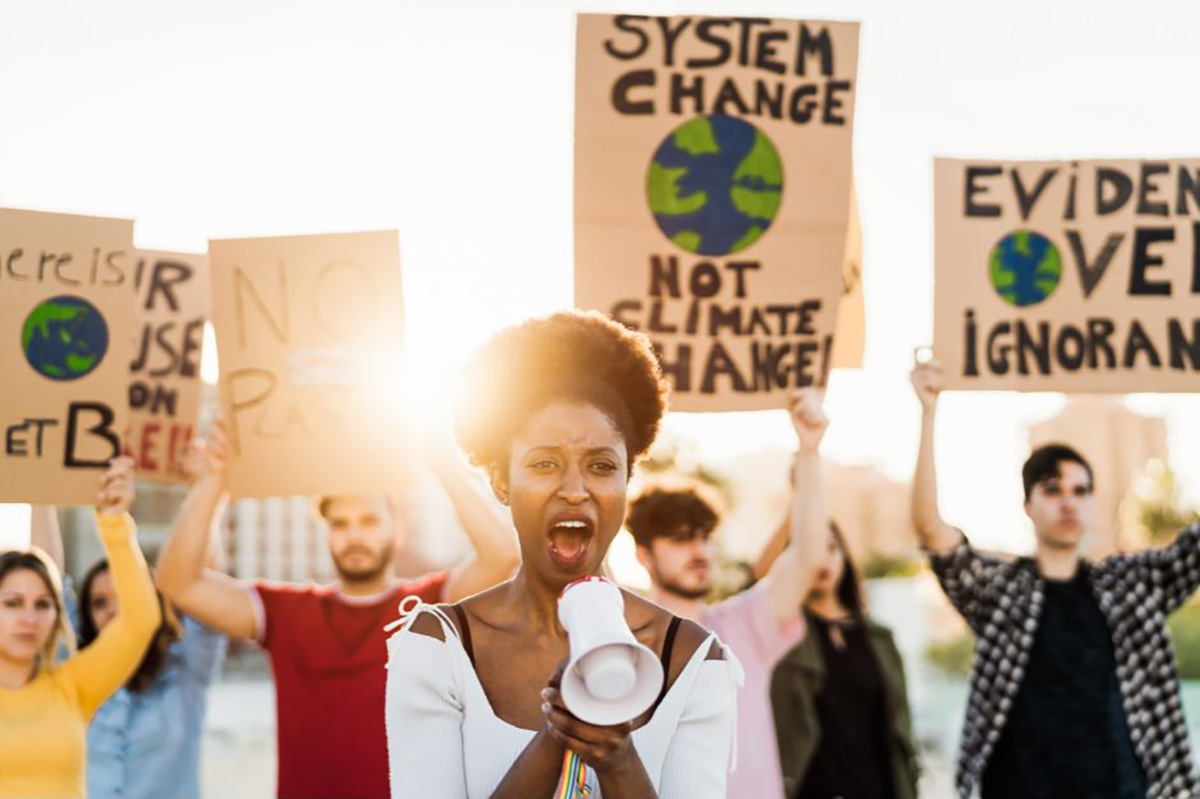Reclaiming Trinidad & Tobago’s water
June 3rd, 2019
The twin islands of Trinidad and Tobago are surrounded by water. But for some residents, sometimes there is not even a single drop to drink. Curmira Gulston, a 2019 Commonwealth Youth Awards finalist, started Learn and Flow to encourage communities to take ownership of rivers and watersheds. Commonwealth Correspondent Ashlee Burnett, 21, from Couva, Trinidad spoke to Curmira about her initiative.
Curmira conceptualised Learn and Flow years before it started, when she engaged in a project by Trinidad and Tobago’s Water Resources Agency under the Water and Sewerage Authority (WASA) led by Dr Sharda Mahabir.
The project encouraged communities and corporate entities to take ownership of the problems affecting their rivers and watersheds by adopting a river to improve the health of watersheds and the lives of those who depended on them. Watersheds are areas or ridges of land that separate waters flowing to different rivers, basins, or seas.
The Caribbean Youth Empowerment Network Trinidad & Tobago (CYEN-TT) adopted the Arima River in Trinidad and the Courland River in Tobago. When CYEN-TT received funding from the UNDP GEF Small Grants Programme, CYEN-TT was able to implement the project, and Learn and Flow was born.

Photo by Marcos Flores from Pexels
Curmira, who is the National Youth Coordinator of the Caribbean Youth Environment Network, launched the Learn and Flow initiative in 2017. Within eight months, the programme had engaged over 1,200 children and over 300 members in the community. They used social media campaigns, presentations, puppet shows, water testing training sessions, reforestation activities, river clean-ups, poster and essay competitions and knowledge sharing sessions.
Implementing and seeing through such a significant project requires more than skill. It takes sleepless nights, hard work and dedication.
Apart from the challenges to implement Learn and Flow – including pooling together a team of volunteers and staying within budget – there were several missing components in the initial project design. The main challenge was data collection – being able to pinpoint where in the watershed difficulties were experienced.
Curmira, who was not a resident of the community, got the opportunity to spend an extended period in Calvary and Mount Pleasant, Arima, with people who relied on a 500-gallon tank for all their daily needs.
Curmira said: “I remember that there was a period where, for over a month, there was no potable water in the area. People in the community were forced to either pay for a truck to bring them water. Those who couldn’t afford this had to do without.
She added: “There were times when you had to catch rainwater to survive. Flushing the toilet was a luxury, and you had to figure out whether cooking was more important than washing a piece of clothing to wear to work the next day.”
Curmira’s experience in the community impacted her greatly, and she was able to structure the project design and its implementation better.
Besides managing major aspects of the NGO, Curmira coordinated youth participation in sessions and wrote both financial and technical reports.
Her journey to becoming a 2019 Commonwealth Youth Award finalist is nothing but inspiring. Her passion for water issues can be traced back to high school when she was a lab assistant at Bon Air High School, where she held sessions to educate the student population on such issues.
Curmira said: “I have become more aware of the issues (about water scarcity), and I’m definitely doing the little things to try to preserve the precious resource that a lot of us take for granted. Do not assume that people are aware of the challenges that you face, so don’t be afraid to tell your story.”
The Commonwealth Youth Awards for
Excellence in Development Work highlights the contributions of young people who
are making a difference in their communities and celebrates their contributions
to the Sustainable Development Goals (SDGs).
………………………………………………………………………………………………………………
About me: I’m a student of English language and literature at the University of the Southern Caribbean, a poet and teaching artist with the 2 Cents Movement, and a blogger and Social Media Assistant at Bocas Lit Fest. My interests lie in gender -based violence, youth development and women’s rights. As a delegate to the Caribbean Regional Youth Council Policy and Advocacy Conference, I gained skill in position paper writing. My goal is to implement policies that ensure equality through equity.
………………………………………………………………………………………………………………
Opinions expressed in this article are those of the author and
do not necessarily represent the views of the Commonwealth Youth Programme.
Articles are published in a spirit of dialogue, respect and understanding. If
you disagree, why not submit a response?
To learn more about becoming a Commonwealth Correspondent please visit: http://www.yourcommonwealth.org/submit-articles/






